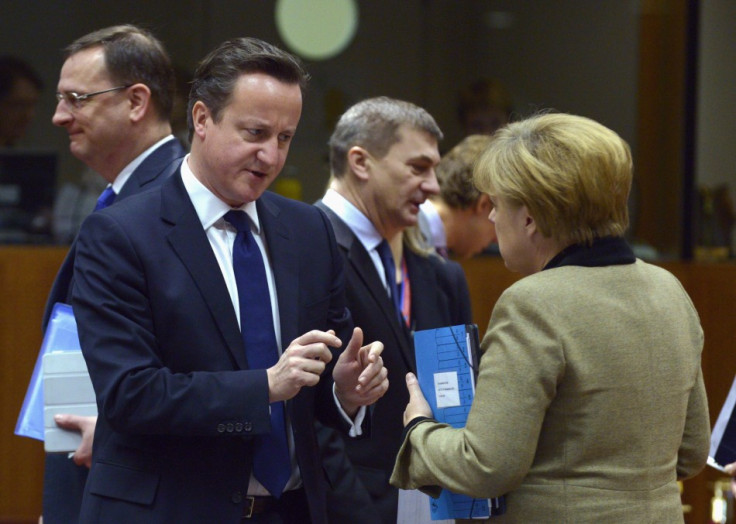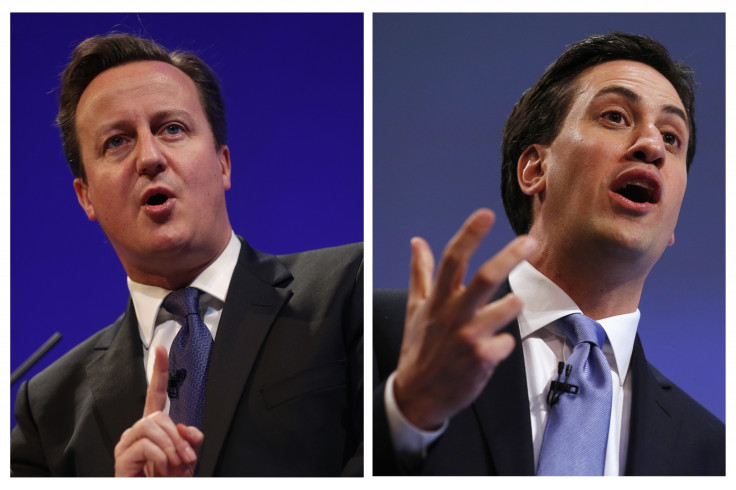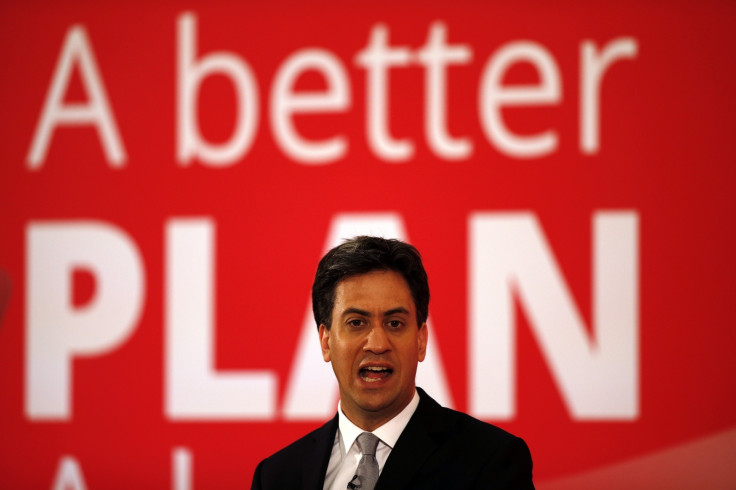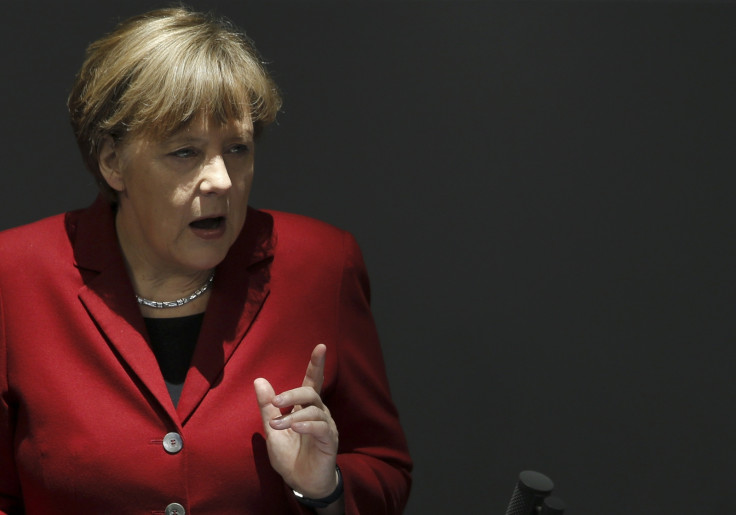Election 2015: EU leaders 'playing cards close to their chest' as UK referendum hangs overhead

Given its reputation for supposedly meddling in British politics, the European Union is staying pretty quiet about the general election. Particularly quiet, given one of the central issues in the campaign is the Conservative promise of a referendum on the UK's membership of the EU.
David Cameron, the Conservative leader, promised the British public in 2012 a long-desired referendum on the EU in order to placate his rowdy eurosceptic backbenchers. And he wanted to stop his party haemorrhaging support to its populist right-wing rival, Ukip, which loathes the levels of immigration from Europe and, amid anti-Westminster sentiment, has seen a rapid rise in popularity.
Cameron wants to say in the EU, but is demanding reforms, among them tighter migration rules under the market's free movement of labour policy and a loosening of employment regulations. Labour also wants reform, but the party leader Ed Miliband has ruled out a referendum unless there is the threat of a transfer of more power from Westminster.
Polling suggests the Conservatives will win most seats in the election, but there will be a hung parliament so it may not be able to form a government with the smaller parties, many of which -- such as the SNP and Plaid Cymru -- are staunchly anti-Tory. The election hangs on a knife-edge.
Yet EU leaders are saying little or nothing about an election that could have big ramifications for the future of the common market and the European project, which is under attack across the continent amid the rise of radical leftism and the far-right, from Syriza in Greece to the Front National in France. Why no word from Angela Merkel and Francois Hollande?
"I think they're playing their cards close to their chest because they realise it's a very close election and anything could happen," Pawel Swidlicki, policy analyst at the Open Europe thinktank, told IBTimes UK.
"They realise that although they might not necessarily like David Cameron, they might well end up having to work with him again. So it's better to not aggravate that crucial relationship."

But they are certainly paying attention. The EU has consistently made it clear that it wants the UK to remain a member. The UK punches above its weight across the world in its political and economic power. It is a strong Nato ally, a "special" friend of the US, and through its Commonwealth -- the benign legacy of empire -- has close ties with countries across continents.
Europe is nervous about a Brexit. Jacek Rostowski, senior adviser to Poland's prime minister, told the Financial Times in April that "anything that weakens the UK also weakens Europe, and weakens Nato."
"Europe is watching," Sophie in 't Veld, vice-chair of the Alliance of Liberals and Democrats for Europe, told BBC News.
"People here realise that national elections have implications for the course of the European Union. Everyone is sure this UK election will somehow lead to a referendum and I hope Britain has not given up on the EU. The EU has certainly not given up on Britain."
The French newspaper Le Monde has also noted the quiet reticence with which EU leaders have greeted the British election.
"Brussels has been careful in recent months to avoid topics that might upset London. And it prefers to keep a radio silence about the next British general election," said an editorial, adding that the EU knows it faces "perilous discussions" with the UK if a referendum takes place.

Yet a Cameron government and a quick referendum may actually be better than a Miliband alternative for the future of the UK's membership of the EU club. It would put the issue to bed for a generation at least and polls suggest Britons would vote to stay in, though the heat of an inevitably fiery referendum campaign could change that.
"From a short-term perspective, some EU leaders might be tempted to hope for a Miliband victory on the basis that it'll make their lives easier because Miliband hasn't pledged to renegotiate the terms of the UK's membership and put it to a referendum," Open Europe's Swidlicki said.
But Swidlicki said there are two things to consider. Firstly, Miliband wants the same reforms as Cameron anyway, but simply believes they can be achieved without the need for a referendum, which could be turbulent for the UK economy. EU leaders would still face a renegotiation with the UK on its terms of membership, even with Miliband.
"The second thing to remember in terms of the biggest picture is that, while certainly the renegotiation and referendum would be a headache for some EU leaders in the short-term, it probably offers the best path to keeping the UK in the EU," Swidlicki said.
"Whereas if you don't have the renegotiation and referendum, and public frustration is allowed to build up, potentially under a Conservative party in opposition that becomes even more eurosceptic, then that actually increases the prospect of Brexit in the longer-term.
"I think some EU leaders might be advised to take a bit of a longer-term view and think, well this is going to be a bit of a headache for us but we're going to tackle it and we'll get through it, otherwise this issue will just come back with avengence in the future."

And there's more: the reforms demanded by the UK could actually benefit other EU leaders too, who also desire to see the EU made more accountable and focused on engendering greater economic growth rather than tying up business with more regulation and bureaucracy. There is a growing anti-EU contingent in major European countries, such as Germany and France, which needs addressing.
"A lot of what the UK has been complaining about has already been taken on board and we see the new Commission is more focused on delivering growth rather than passing regulation for the sake of it, which was often the impression one got under the previous Commission," Swidlicki said.
"Certainly there has already been progress and Cameron would push for further such reforms, and also reforms to make the EU more democratic and more accountable to the public.
"So these are all reforms that would address not only the satisfaction with EU membership in the UK, but also in other member states."
© Copyright IBTimes 2025. All rights reserved.






















